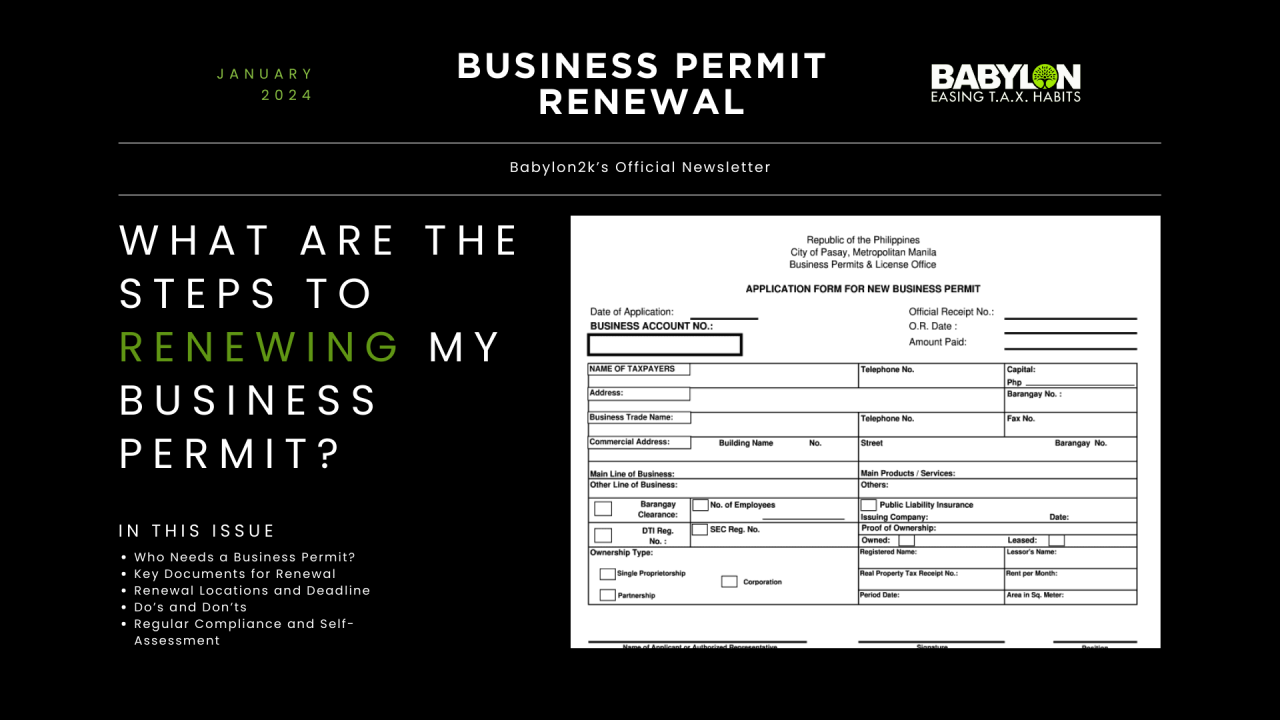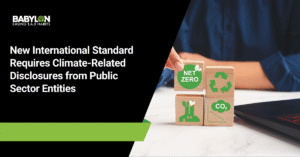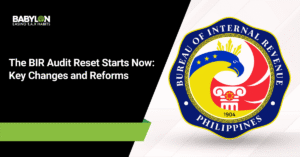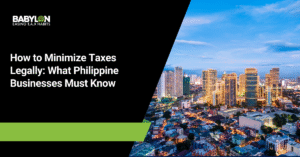Streamlined Business Permit Renewal: A Guide for Philippine Entrepreneurs under the LGC of 1991
Navigating the Legal Landscape: Understanding the LGC of 1991
The Local Government Code (LGC) of 1991, particularly Sections 143 and 171, sets a clear legal framework for local taxation and compliance in the Philippines. Understanding these sections is crucial for businesses to navigate the complexities of tax compliance and business permit renewal.
Who Needs a Business Permit?
As mandated by the LGC of 1991, all business entities in the Philippines, including sole proprietorships, partnerships, corporations, and cooperatives, are required to renew their business permits annually. This is a vital step to ensure legality and contribute to the local economy.
Key Documents for Renewal
A smooth renewal process requires gathering key documents such as the previous year’s business permit, barangay clearance, community tax certificate, lease contract, sanitary and fire permits, audited financial statements, and VAT returns. This preparation aligns with the requirements outlined in Section 143 of the LGC.
Renewal Locations and Deadline
Business permits are renewed at the LGU’s City or Municipal Hall, with many LGUs facilitating this process through Business One-Stop Shops (BOSS) and online systems. The standard deadline for renewal is January 20 each year, as specified in the LGC.
Efficient Renewal Process: A Step-by-Step Approach
- Complete the Unified Application Form: Found online or at LGU offices.
- Compile Required Documents: In line with Section 143 of the LGC.
- Submit to the LGU: Opt for online platforms for convenience.
- Understand Tax Obligations: Assessments based on gross income, including other income sources, as per LGC guidelines.
- Make Payment: Choose online payment for efficiency.
- Collect Your Business Permit: Ensuring all steps are compliant with LGC provisions.
Ten Practical Dos and Don’ts for Renewal
Dos:
- Early Preparation: Begin collecting documents well in advance.
- Use Online Platforms: For efficient and streamlined processing.
- Accurate Income Declaration: Including all income sources as required by the LGC.
- Consider Quarterly Payments: To align with actual earnings.
- Regular Review of Past Payments: In compliance with Section 171 of the LGC.
Don’ts:
- Avoid Delays: Late renewals can lead to penalties under the LGC.
- Report All Income Sources: Compliance with Section 143 of the LGC.
- Stay Updated: With changes in LGU requirements.
- Check for Exemptions Regularly: Like BMBE or PEZA.
- Seek Professional Assistance: From platforms like https://babylon2k.org
Regular Compliance and Self-Assessment
Regular audits and self-assessments are crucial to align reported income with actual earnings, especially for permit purposes. In the case of an LGU examination, as detailed in Section 171 of the LGC, thorough self-assessment helps identify any discrepancies. It’s essential to address unremitted amounts promptly for compliance.
Leveraging Countryside Operations: A Strategic Approach
- Case Study: Geographic Income Distribution for Tax Savings
- Manila Only: PHP 600,000,000 income leads to PHP 4,500,000 tax.
- Scenario 2 (Manila & Davao):
- Manila: PHP 180,000,000 income, PHP 1,350,000 tax.
- Davao: PHP 420,000,000 income, PHP 2,835,000 tax.
- Total Tax: PHP 4,185,000;
- Savings: PHP 315,000;
- Savings Ratio: 0.0525%.
Takeaways:
- Accurate Income Declaration: Including all sources of income, operational and otherwise, as mandated by the LGC, ensures compliance and avoids penalties.
- Amendment for Tentative Income Reporting: If initial income declarations are tentative, amend them promptly to avoid heavy penalties, adhering to Section 143 of the LGC.
- Leveraging Location for Tax Efficiency: Strategic income allocation between different LGUs can lead to significant tax savings, as demonstrated in the Manila-Davao scenario.
Conclusion: The Bigger Picture
Timely and accurate reporting and remittance of taxes is more than just a legal obligation. It is crucial in supporting the Philippine economy and funding vital government social services. By staying compliant and informed, businesses contribute significantly to national development.
For ongoing support and regular tips on tax management, including local, national, digital, and international tax issues, join our community at https://babylon2k.org. Let’s navigate the complexities of tax compliance together and keep our businesses thriving.






